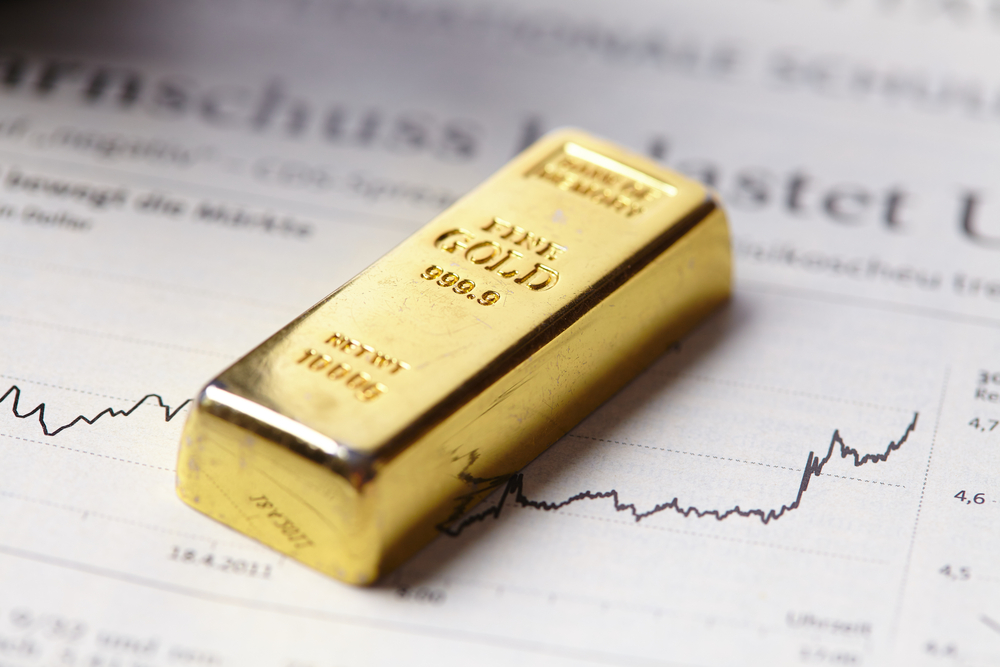We all want to receive the greatest deal possible, even though actual gold and silver offer long-lasting properties that most other investments don’t. It seems sensible that wise buyers would take timing into account while making purchases.
What To Consider Before Buying Gold
Many people wonder when is the ideal time to invest in gold because the price of the metal may change drastically, even over relatively short periods. As you may expect, this is a rather complicated question, given all the variables that might affect the precious metal.
You must decide on four important aspects before attempting to respond to it:
- How do you anticipate the short-term course of gold’s price?
- What do you anticipate the long-term course of gold’s price to be?
- Do you buy gold to protect your investments from unforeseen circumstances?
- Do you purchase gold with the intention of making quick money?
What Affects the Price of Gold?
The price of gold is affected by many things. To help you identify when the right time to buy gold is, we’ll delve into the different factors that affect gold prices so that you can understand how they affect the price of gold and look out for them so that you know when to buy.
Unexpected Events
When an unexpected or relatively unanticipated incident happens, historically gold prices spike, increasing concern over upcoming political or economic prospects. This might be as severe as a battle or war breaking out, but it could also be something less extreme and more “short-term,” like an unexpected election or referendum outcome.
Unexpected events frequently have a ripple effect on the financial markets, which can affect gold prices. Many investors could decide to liquidate their holdings as soon as possible and invest in gold if something unanticipated occurs and the values of other investments, such as shares, start to plummet all at once.
Their major objective is to make sure they have something worthwhile when things come to a close. Because there is a limited amount of gold produced each year and it cannot be easily raised in response to pricing, this frequently results in increases in the price of gold.
Political, economic, and social variables all have an impact on the price of gold, so knowing which global events are likely to have an impact on the key players in the investment market can help you decide whether to invest.
A notable illustration of this is the sharp increase in gold prices that followed the Nixon Shock, as well as the sustained high gold prices in the UK that followed the political unrest of Brexit and the spike during the pandemic.
Inflation
Gold has historically done well as inflation increases. In reality, gold has historically been regarded as a hedge against inflation, and its price has been rising recently. A measure of how well gold has done recently compared to money and how it functions as a defender of wealth against inflation is the buying power of cash relative to gold.
Interest Rates
When investor confidence in the economy is poor, the price of gold does tend to increase. For this reason, gold is seen as a beneficial hedge against other investment types that are typically exposed to counterparty risk and as a guardian of wealth.
After being extremely low for more than ten years, interest rates are now at record lows. But this does suggest that a rate increase may be coming. The relationship between interest rates and gold is more intricate than the widely believed notion that “interest rates rise, gold falls.”
Despite presumptions regarding gold and interest rates, double-digit gains in the gold price have repeatedly been observed after rate increases. The link is complicated, but even if interest rates are expected to increase, the outlook for gold investments is still favorable at the moment.
Personal Circumstances
Gold investments are a dominant strategy to safeguard and consolidate financial gains, whether they are sudden windfalls like inheritances or gradual accumulation. It is normal and fair to want to preserve your capital as much as you can after experiencing a significant, abrupt, and maybe unexpected gain in it.
For this reason, the topic of “when to invest in gold” is frequently asked, and the answer is after receiving an inheritance. As a result of holding other asset classes, such as those linked to financial markets, many investors also decide to invest in gold.
Your newly obtained riches will be protected from the chance that one market will crash or one poor move will bring the rest of it down if you diversify it by spreading your assets across other areas and types of investments.
The world’s best investors and hedge fund managers use gold’s stable value as part of a varied investment portfolio, so even if you’ve already made investments in other areas, it’s usually a good time to add gold to your portfolio.
Retirement Planning
The best time to invest in gold is after you’ve worked hard for a while and have some money saved up that you want to keep for retirement or to leave for your loved ones.
A uniquely comfortable method of securing your assets for the future is to use a tangible object that you own and keep it in a secure location as a strategy to preserve riches accumulated throughout a career.
Depending on your specific situation, gold can help you increase your capital tax efficiently while also protecting your investment. More and more individuals are turning to gold as a means of wealth protection while conducting the financial planning necessary for a pension.
Timing Your Gold Investments
The main purpose of physical gold investing is to protect your money’s value from external uncertainty by putting it in a stable medium.
Investors are drawn to gold investments due to their stability and security in the current economic environment, which is characterized by rising inflation, low-interest rates, and a strain on the world’s resources.
So when should you make a gold investment? Investment in gold is advisable when there is little faith in the stock market, when banks are unreliable, when the political or economic situation is unclear, and when there is a chance that other types of investments may depreciate.
It makes sense as a hedge in a private investment portfolio or following specific life events, such as a windfall. Investors would prefer gold in advance of situations that might lower investor confidence, such as political unrest or financial crises, if perfect foresight were accessible.
However, even without flawless foresight, keeping a close watch on current affairs and economic trends as well as having a firm grasp of the market might help you to make the appropriate decision.






